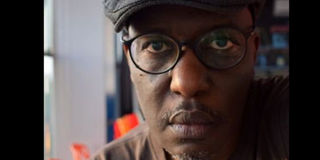The way Ugandans see their army: Things have changed

Ernest Bazanye
What you need to know:
- We have learned never to expect them to indicate, to stop at lights, to keep their lanes or to say “Maybe let me just not do it” when they feel the impulse to step out of the truck to beat our faces with gun butts because we were hooting.
A lot of things have been said about the tussle in the traffic, the melee on the motorway, the rumble on the road. The altercation between traffic policewoman Esther Namaganda and army officers who ramboed up and engaged aduyi after she tried to stop them making an illegal U-turn.
Personally I blame the education system in Uganda. We turn out graduates who are considered fully qualified to be hired by the state to keep peace, but they lack the basic skills, such as ducking.
That dreadful joke is one of many things that have been said about this incident. And a lot more sentiments have been expressed.
None of them have been shock, however; no one was surprised that army big wigs threw hands on traffic cops in broad daylight.
As long-term victims of Uganda, we have long learned that vehicles with certain number plates shall not be expected to conform to such mundane civilian things like decency, courtesy or rules, and when you see a traffic cop attempt to arrest an army dude, that is the time to pull out your phone, conceal yourself in a safe, hidden vantage point, and film the inevitable fracas, because that goes viral.
Yeah. Let those who pay OTT see what their tax shillings are used for.
We don’t expect HF to comply with traffic law enforcement, we don’t expect HF to even obey traffic laws.
We don’t expect HF to comply with law.
It’s the army. We expect it to operate above it.
As inmates of this gulag we call Uganda, we have settled into low expectations like that. Our place is not to be served and protected by the armed forces, our place is to stay out of their way.
There was a time, a brief spark of light in our history of darkness when army officers were not considered swaggering bullies, if you can stretch your credulity to imagine it.
In the early nineties, as a child in Kenya I remember my Ugandan relatives recounting in astonishment, rumours they had heard of soldiers who actually, seriously, for real, no lie, avoided kicking and beating civilians.
They spoke of the NRA as if it was magic, science fiction, as if it came from the same realm of dreams as Disney cartoons, something they thought could only exist in their wildest dreams, army personnel who were disciplined and respectful and decent. Uganda could not believe her luck!
It lasted for a while. But, Uganda is Uganda. Ugandan history is like my relationships. Sooner or later, the centre loses hold and things fall to pieces.
Allow me to present a metaphor for your delectation.
This is a glass of water. Half a litre is contained within it. It is pure so it will be good for you. You should drink such things as this.
I could add a spoonful of dirt to it.
It’s still water. The same amount of healthy water. The amount of water has not changed. There is a chance that the sip you take will not contain any of the disease-causing germs that were living in the spoonful of dirt, but, no one is going to drink it, right?
It’s now a glass of muddy water.
A nation needs an army. We saw that as recently in our lives, when we needed brave men and women to get up, leave their homes, travel all the way to Gulu and risk their lives to destroy Joseph Kony. There are heroes whose sacrifice, whose valour, whose courage and spirit we should never forget.
The NRA and the UPDF are water.
But now it’s not possible to look at an HF vehicle trundling down the street without checking your mirrors for a quick and easy escape. That is a sprinkle of dirt in the water.
We have learned never to expect them to indicate, to stop at lights, to keep their lanes or to say “Maybe let me just not do it” when they feel the impulse to step out of the truck to beat our faces with gun butts because we were hooting.
I don’t believe UPDF is trash; I believe in UPDF. And I believe in the Police. I believe there are many in the rank and file who believe in the best Uganda has to stand for, they believe in it enough to stake their lives to protect it.
But I also won’t be so naive as to pretend I don’t see how invisible they are. The general view of the army on these streets is that it is a species of belligerent, bellicose, brawling, brutes who roll around town just wishing someone would cross their path.
Maybe if justice is served in the case of Sergeant Namaganda, Uganda will learn to see her soldiers as soldiers again.
And not as the sequel to Obote and Amin’s goon squads.




